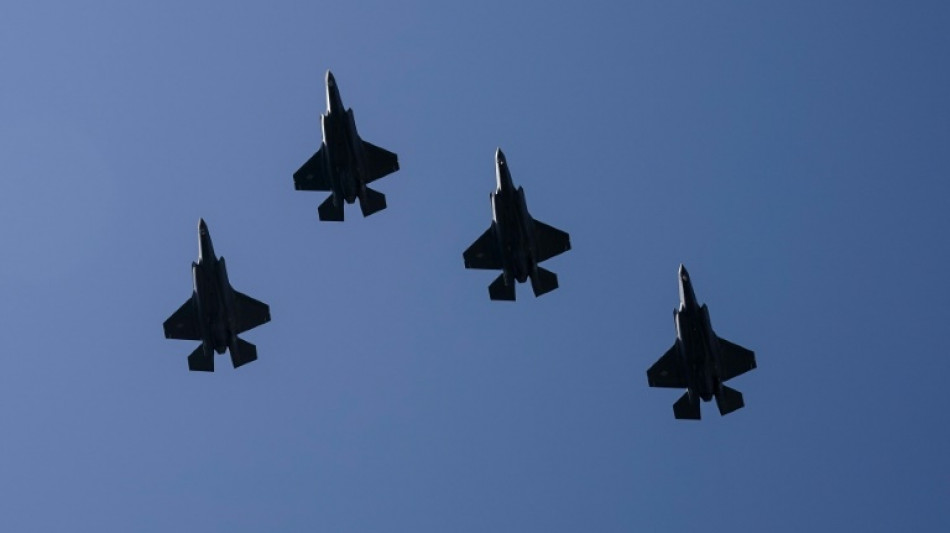
Venezuela's Maduro urges dialogue after Trump threat

Venezuelan leader Nicolas Maduro on Friday called for dialogue with Washington, hours after President Donald Trump threatened to shoot down Venezuelan military jets if they pose a danger to US forces.
Tensions between the two countries soared in recent days after the Pentagon accused Venezuela of buzzing its ships in the Caribbean following a deadly US strike on an alleged Venezuelan drug boat.
"None of the differences we have and have had can lead to a military conflict," Maduro said in a message broadcast on all of Venezuela's radio and television networks.
"Venezuela has always been willing to talk, to engage in dialogue, but we demand respect," he added.
As tensions mount, Washington is deploying F-35 warplanes to Puerto Rico as part of Trump's war on drug cartels.
The 10 aircraft will join US warships already present in the southern Caribbean as Trump steps up pressure on Maduro, whom the United States accuses of leading a drug cartel.
Maduro denied that in his evening speech.
"Those intelligence reports they give him (Trump) are not true," Maduro said. "Venezuela today is a country free from coca leaf production, cocaine, and is a country that fights against drug trafficking."
- 'Dangerous position' -
Asked earlier Friday what steps he would take if there were further incidents of Venezuelan jets buzzing US ships, Trump said: "If they do put us in a dangerous position, they'll be shot down."
US forces on Tuesday blew up an alleged drug boat in the Caribbean that Trump said belonged to Tren de Aragua, a Venezuelan criminal organization he tied to Maduro, killing 11 people.
The high-tech F-35 jets are being deployed to an airfield in Puerto Rico, a US Caribbean island territory of more than three million people, US sources familiar with the matter told AFP on condition of anonymity.
Maduro -- a leftist firebrand whose last election in 2024 was seen by Washington as illegitimate -- has denounced the US buildup as "the greatest threat our continent has seen in the last 100 years."
Declaring his country prepared for "armed struggle in defense of the national territory," he has mobilized Venezuela's military, which numbers around 340,000, and reservists, which he claims exceed eight million.
From his side, White House Deputy Chief of Staff Stephen Miller described Maduro as an "indicted drug trafficker" and said Venezuela is being run by a "drug cartel, a narcotrafficking organization."
Tuesday's deadly attack on what Washington said was a drug-carrying boat was a major escalation, as well as an unusual use of the US military for what has historically been a law enforcement issue.
There are currently eight US Navy vessels involved in counter-narcotics efforts in Latin America: three amphibious assault ships, two destroyers, a cruiser and a littoral combat ship in the Caribbean, and one destroyer in the eastern Pacific, a US defense official said this week.
The Department of Defense -- which Trump rebranded Friday as the "Department of War" -- said two "Maduro regime" aircraft flew near a US vessel Thursday.
"This highly provocative move was designed to interfere with our counter narco-terror operations," it said on X. It did not give further details.
Venezuela has 15 F-16 fighter jets purchased from the United States in the 1980s, plus a number of Russian fighters and helicopters.
During a trip to Latin America this week, Secretary of State Marco Rubio defended the new aggressive approach towards what Washington calls "narcoterrorist" groups.
"What will stop them is when you blow them up, when you get rid of them," Rubio said Wednesday in Mexico.
A.Parker--TNT